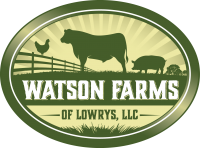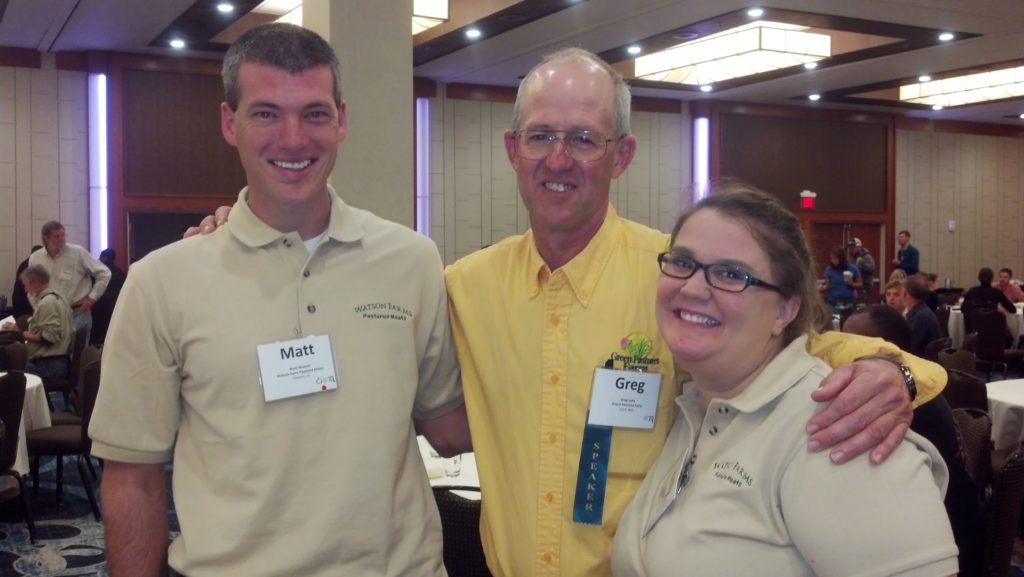Through this blog series we would like to bring you along with us to show you how we have adapted in the past and how we intend to adapt going forward. We have made some big changes lately to our operation, and we want to show you how we got here, and how you can join us in our mission to be better farmers. This is the last installment of the series, and we hope you have enjoyed it.
Shortly after expanding our turkey operation, I read a book by Joel Salatin called Family Friendly Farming, which was one of the most influential books I’ve ever read. It showed me that a farm could and should be much more than I envisioned. It should be welcoming, not forbidden; full of life, not disease and death; and most of all it should be family-friendly. This is exactly the opposite of what our farm often was when we were in the turkey business.
So I kept reading Joel’s books, and they kept convincing me that a farm could be much better for the animals, the environment, the consumer, and the farmer. My dad and I visited Polyface (Joel’s farm) in 2011 for a Lunatic Tour (see videos below). On this tour led by Joel himself, I was able to ask him how we should go about extricating ourselves from the turkey business and transitioning to an entirely pasture-based farm. He said, “Big ships turn slowly.” I thought about this and decided to start turning the ship – we just didn’t know how long it would take.
We thought it could take 15 years or more, so we started making as many changes as possible like burying water lines that would allow for more frequent rotations with the cattle. We started stacking enterprises like pastured pork and chicken to compliment our beef. We also continued to do our best to entrench ourselves in the world of pasture based livestock and not continue to get caught up in traditional agricultural practices. So we attended seminars and events such as the Sustainable Ag Conference by Carolina Farm Stewardship Association and the Grazier’s Marketing School put on by The Stockman Grassfarmer.
So little by little, we made improvements that moved us more toward a completely pasture-based farm. And then 2020 came along.
Early this year we placed a flock of turkeys that started like many other flocks. They had a case of E.Coli early on in their 4-month stay at our farm and were on antibiotics on and off throughout the grow-out period. Then around Easter, we had a couple days of increased mortality and our integrator thought it might be bird flu. There had been several cases of bird flu in the company in previous weeks and everyone was a little on-edge. So the integrator reported our mortality to the state vet who then quarantined our farm. The state said no traffic could go in or out of the farm so that meant that we couldn’t do several other things necessary to conducting our other farm operations. We had a load of cattle that had to go to the processor, and we were constantly needing to move meat to and from freezers on the farm. We were eventually able to conduct the necessary activities once the bird flu test came back negative, but the whole experience opened our eyes to the reality that the turkey business was no longer a complimentary enterprise that could coexist on our farm.
Before we could terminate the turkey contract, we had to deal with some potential problems like the debt on the turkey infrastructure and making sure there would be sufficient income to cover what the turkeys had once produced. To help walk us through some of this, I reached out to Polyface to see if Joel did consultation work and if he was able to do it for us. It turned out his schedule had some openings because a lot of events had been cancelled due to coronavirus. So we set up a date in April and we picked him up at the airport and showed him around the farm the next day. We brainstormed about repurposing the turkey barns once they were empty, and Joel was very helpful in digging into various enterprises and showing us where profit was gained and lost. One of the things that stuck with me the most is when I asked him that if he were me, would he would be nervous about getting out of the turkey business. He responded that he would be nervous about staying in it. We were all mentally exhausted by that evening, but we were very encouraged and knew we had a lot of work ahead of us. We got Joel back to the airport the next morning, after which he posted this on his blog.
We were fortunate to have a lot of things that were giving us a tail-wind and allowed to go through with committing to an entirely pasture-based, direct-marketing farm. With all the bad things that coronavirus brought, it made our meat sales soar to a level we never knew was possible. In February of this year, we had overhauled our website and prepared it to better handle traffic and to be more organized. We had also began a Home Delivery service that was up and running and ready for the heavy order volume we would see this year. We had more grass-finished beeves that were fat in early 2020 than we knew what to do with. We were very close to dumping some of them at the salebarn for lack of a better market. Fortunately a wave of demand for locally produced grass-fed beef was just around the corner. We were able to quickly adapt as the market changed by finding a new delivery van and another walk in freezer. These things and more allowed us to reach the capacity necessary to displace the enterprise on our farm that at one time seemed like it would never go away.
We had also geared up and expanded our pastured egg enterprise so that by the last turkey flock, we were marketing around 150 dozen eggs per day.
We also geared up quickly in April and May for a pastured broiler enterprise that can produce up to 10,000 broilers per year. Polyface’s pastured broiler model was perfect for us in that the infrastructure is relatively inexpensive.
So the main point is this: consumers that demand ethically-raised pastured proteins can change our food system dramatically. We’re living proof of that, and we are extremely grateful to those who have made such a wonderful choice with their food dollar.
We know there will be great challenges ahead that we cannot foresee. But we also know that a local, pasture-based food system supported by wonderful customers like yourself creates resiliency that the industrial food system will never be able to reproduce.
Thank you again for investing in our farm and for reading this blog series. I hope it has allowed you to get to know us and connect with us. We look forward to serving you.
Enjoy these photos and videos that show you some efforts we’ve made toward this transition in the last decade or so.
















Thank you for sharing your family’s history in this blog series. I read parts 1-4 in one sitting.
We wish you continued success. Our family is blessed to have found you this year. We hope to satisfy all our beef, pork, and chicken purchasing needs going forward by buying from Watson Farms. The home delivery is a big help to us.